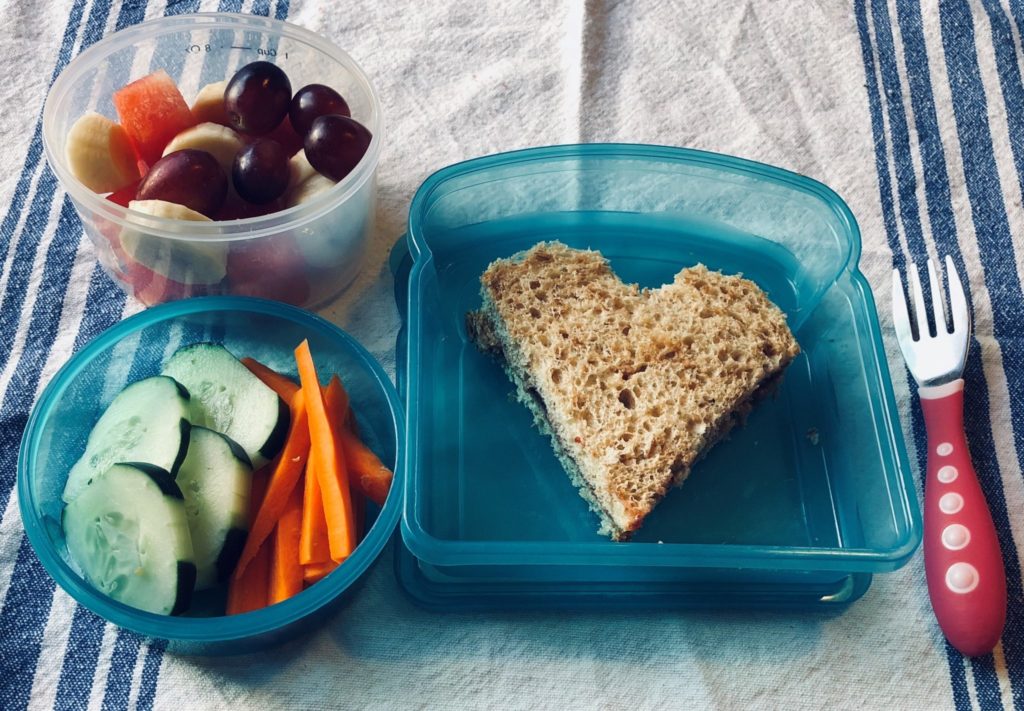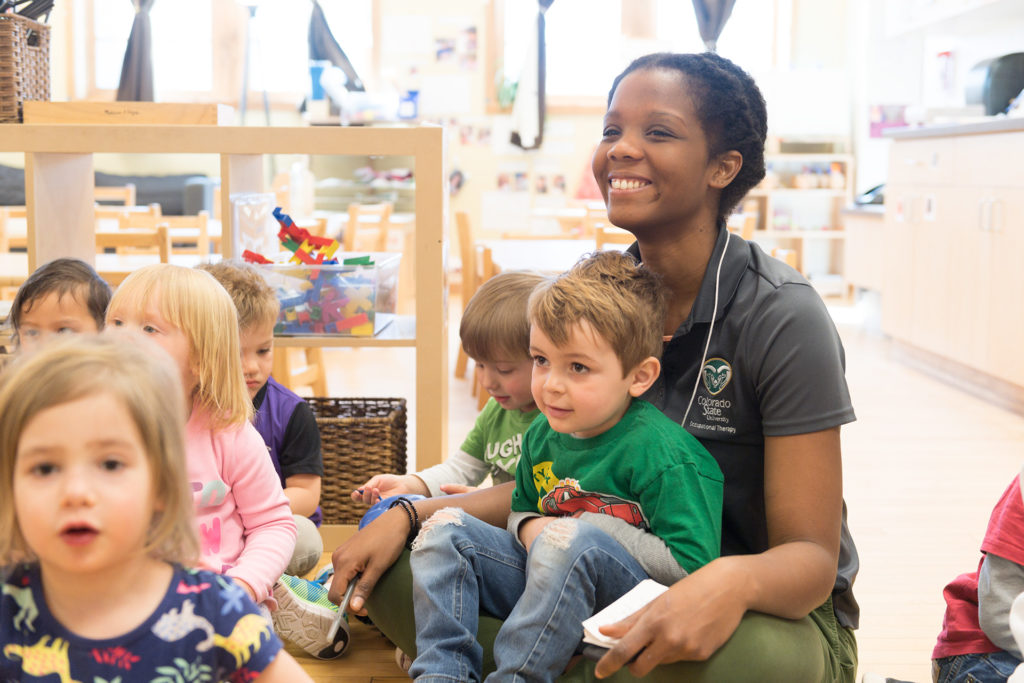Colorado State University researchers are turning to the Early Childhood Center on campus for a study on children’s lunches.
The Early Childhood Center not only prepares CSU students for careers working with children and families, but also provides diverse opportunities for research related to children, families, and early childhood education. The ECC is a laboratory school, so families understand that their children are helping to advance important discoveries when they are participants in observational research studies.
“Research with the ECC provides a new avenue to expand your work,” said Morgan McCloskey, research associate in the Health Behaviors Lab (HBL), which is led by Laura Bellows, associate professor in CSU’s Department of Food Science and Human Nutrition. “It’s such a great place to do that because it’s so close to campus and everyone is excited to collaborate and advance the research mission of the ECC.”
ECC lunch study
Many published studies have shown that when parents pack their preschooler’s lunch, it’s often less healthy than the ones provided by preschool centers. At the ECC, that does not seem to be the case.
This situation motivated the Health Behaviors Lab, including food science and nutrition master’s student Shannon Mallory, to take a closer look at the ECC children’s lunches to see what was really going on.
“As a mother myself, I know how hard it is to make nutrition a priority among all the other challenges of parenthood, especially in the preschool age when children are hesitant to try new foods,” Mallory said. “But if we can introduce healthy foods early in life, children develop preferences for these foods, which typically continue into adulthood. This project inspires me because we hope to gain insight from parents of preschoolers at the ECC to help make providing a healthy lunch for our young children more intuitive.”
After reviewing the existing literature on packed lunches, Mallory, McCloskey and a team of HBL students ventured to the ECC campus every day for two weeks in April to take pictures of the children’s lunches both before and after they ate. This way they could evaluate what their caregivers packed for them and what the children actually ate.
As a continuation of her master’s project, Mallory plans to conduct follow-up interviews with ECC parents to find out about their motivation for packing lunches along with ideas and tips they have for other families.
With the gathered information, they hope to create a toolkit for other parents to disseminate these healthy lunch ideas to families beyond the ECC community.
Current research at the ECC
The history of the ECC dates back to 1929, when it originally opened on Laurel Street. Today, the ECC is located in the former Washington School on South Shields and serves approximately 150 children (ages 6 weeks to 6 years). The ECC also trains more than 170 students from various departments across campus, including Food Science and Human Nutrition, Human Development and Family Studies, Occupational Therapy, the School of Education, and the School of Music, Theatre, and Dance.
There are currently a variety of research studies taking place at the ECC. For example, occupational therapy faculty member and doctoral student Lisa Fyffe is studying how the experience of play prepares children for school. To date, Fyffe has explored teacher perspectives on how early childhood education and OTs can blend their best practices to provide a dynamic learning environment where every child is supported as they learn, play, and grow. This line of research recently expanded to include parent perspectives on the benefits of play-based experiences in early childhood.
According to Karen Rattenborg, executive director of the ECC and assistant professor in the Department of Human Development and Family Studies, “the importance of the first five years of life cannot be overstated. The ways that children are supported during this time are critical to their future health and development. This is why research is so important; it helps us to better understand optimal approaches that promote positive outcomes for children and families.”

Future opportunities for research
“If you’re interested in doing early childhood research, the ECC is a wonderful opportunity, as the teachers and staff are extremely helpful with facilitating, and you get an abundance of support,” McCloskey said.
In addition, each of the ECC’s seven classrooms are equipped with observation technology that provides meaningful applications for CSU students and researchers. In 2017, the ECC launched an online and remote system for CSU students to reserve time in the ECC observation booths.
In 2017, 418 CSU students completed 1018 observations at the ECC. “After my time spent at the ECC, I now see education as an experience or interaction,” one CSU practicum student said of the ECC. “Children learn such monumental things in ways that are easily overlooked. We as educators, parents, and adults in general, have an immense amount to learn from observing these children as they interact with and explore their world.”
With its mission to promote research related to children, families, and early childhood education, the ECC is a vibrant setting for hands-on research. CSU faculty members interested in conducting a research study at the ECC should contact Karen Rattenborg at Karen.Rattenborg@colostate.edu for more information.
The Early Childhood Center is in the Department of Human Development and Family Studies, part of CSU’s College of Health and Human Sciences.